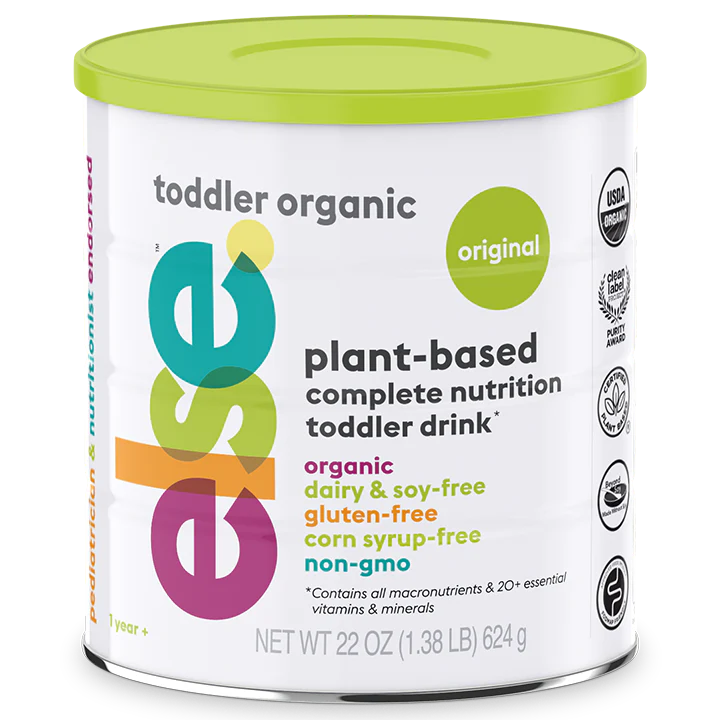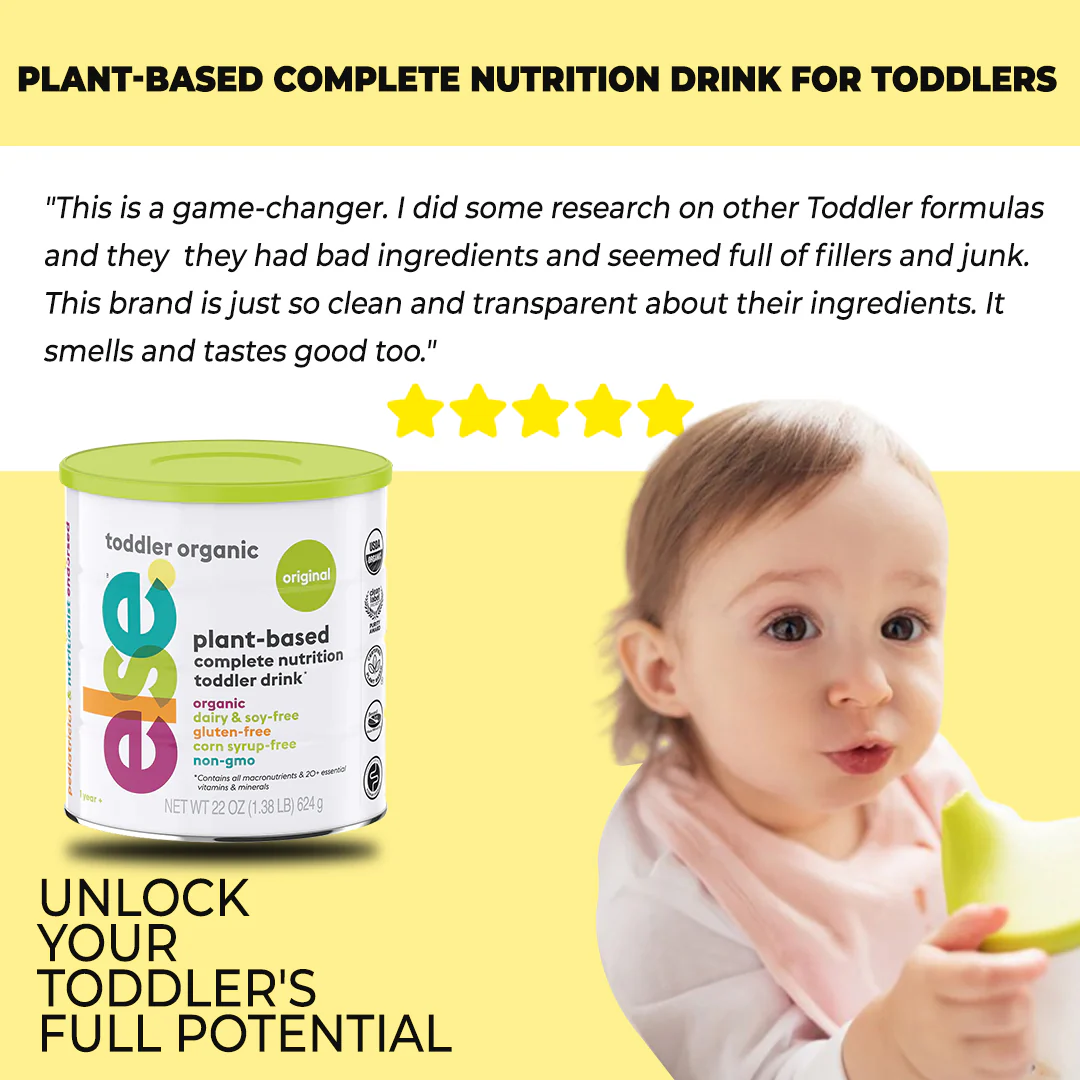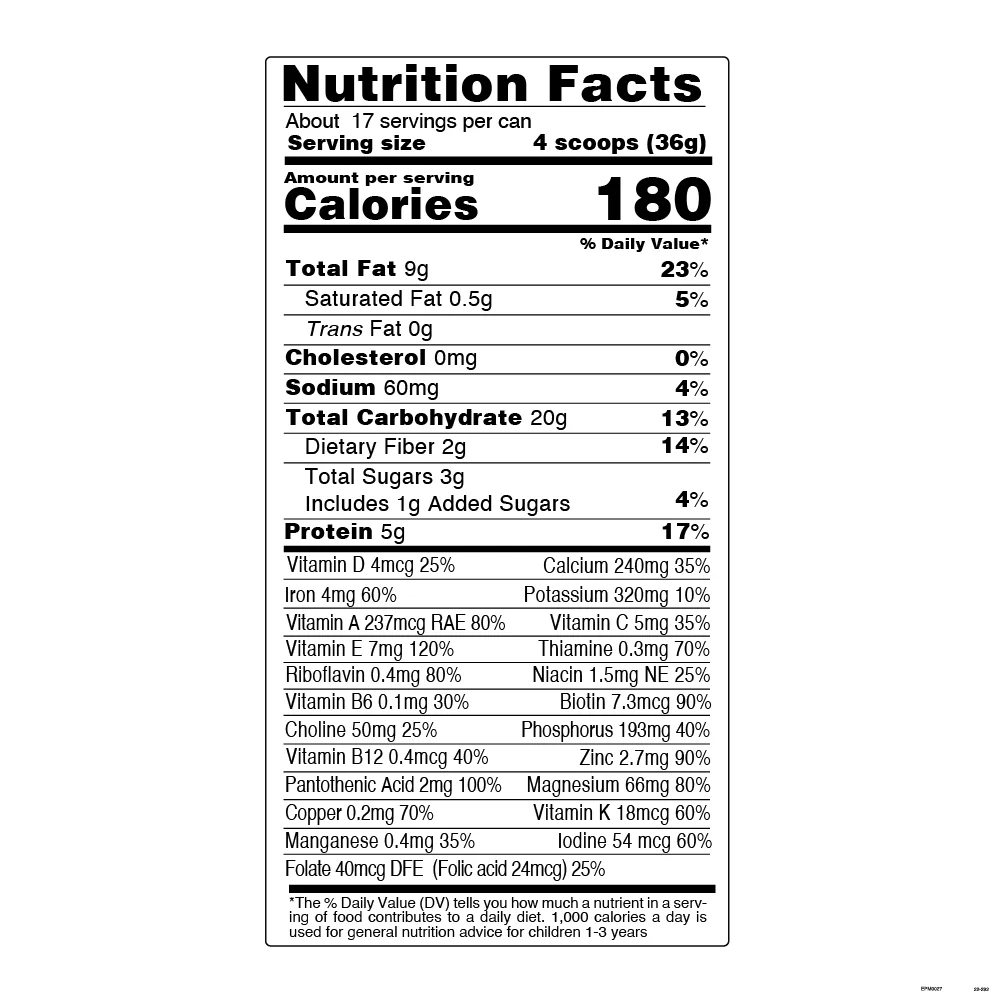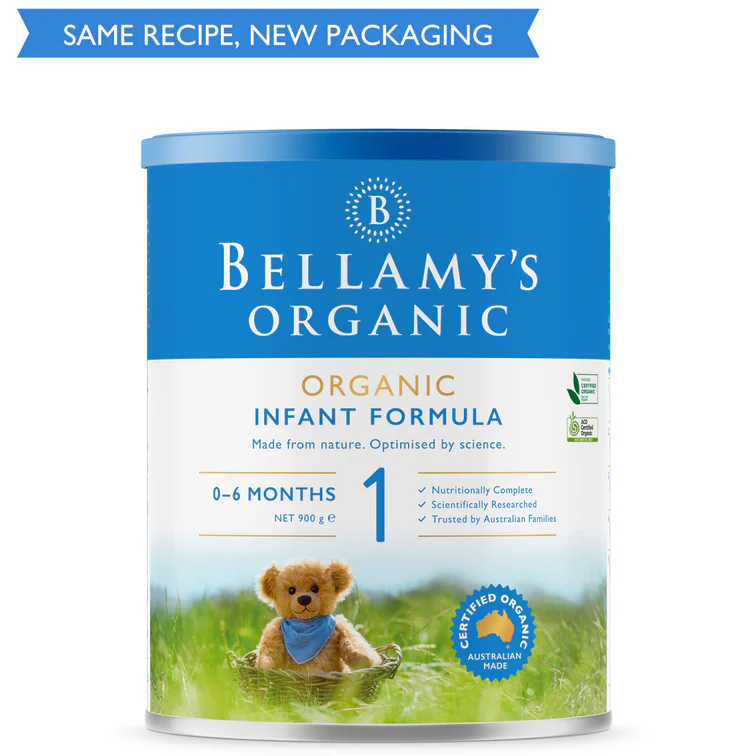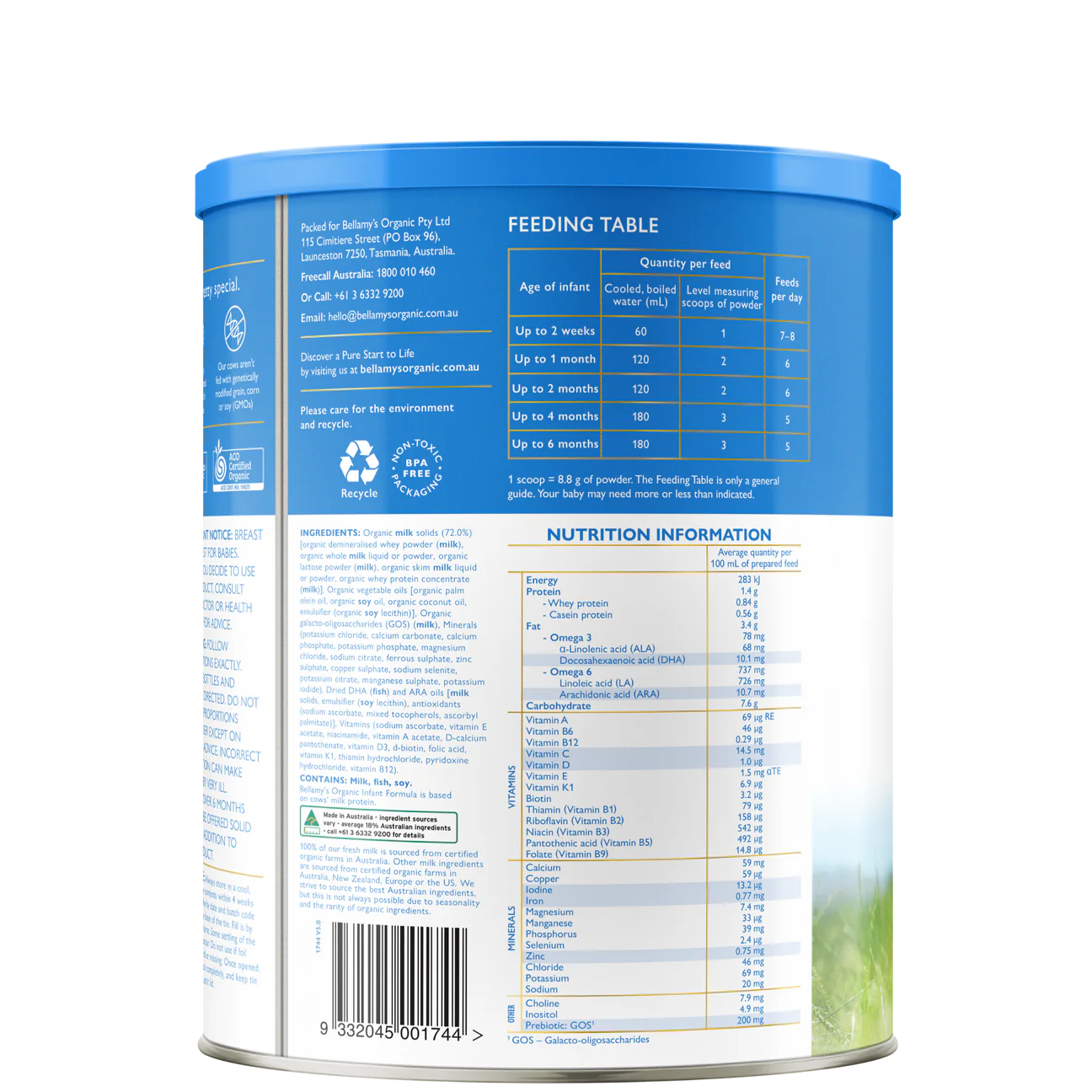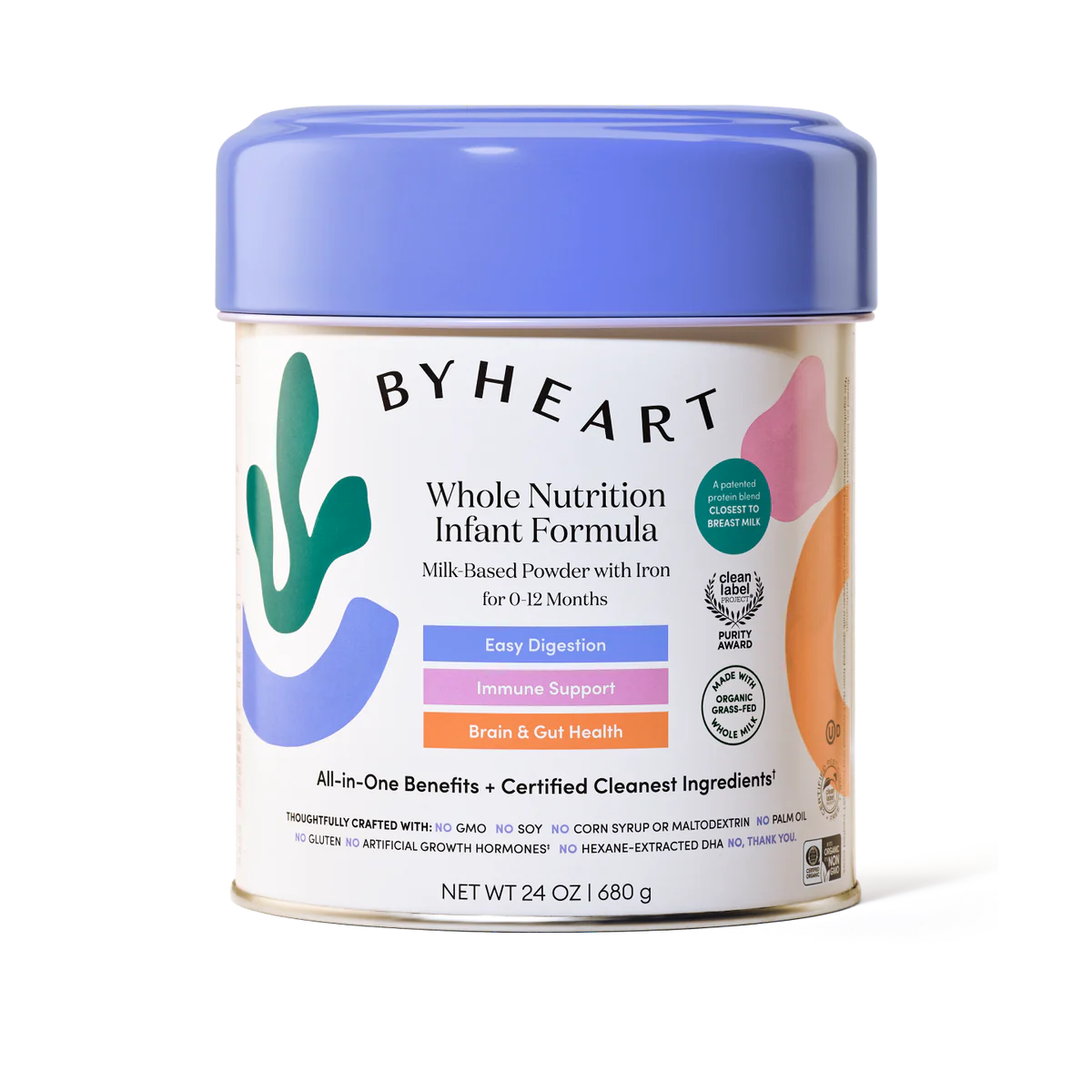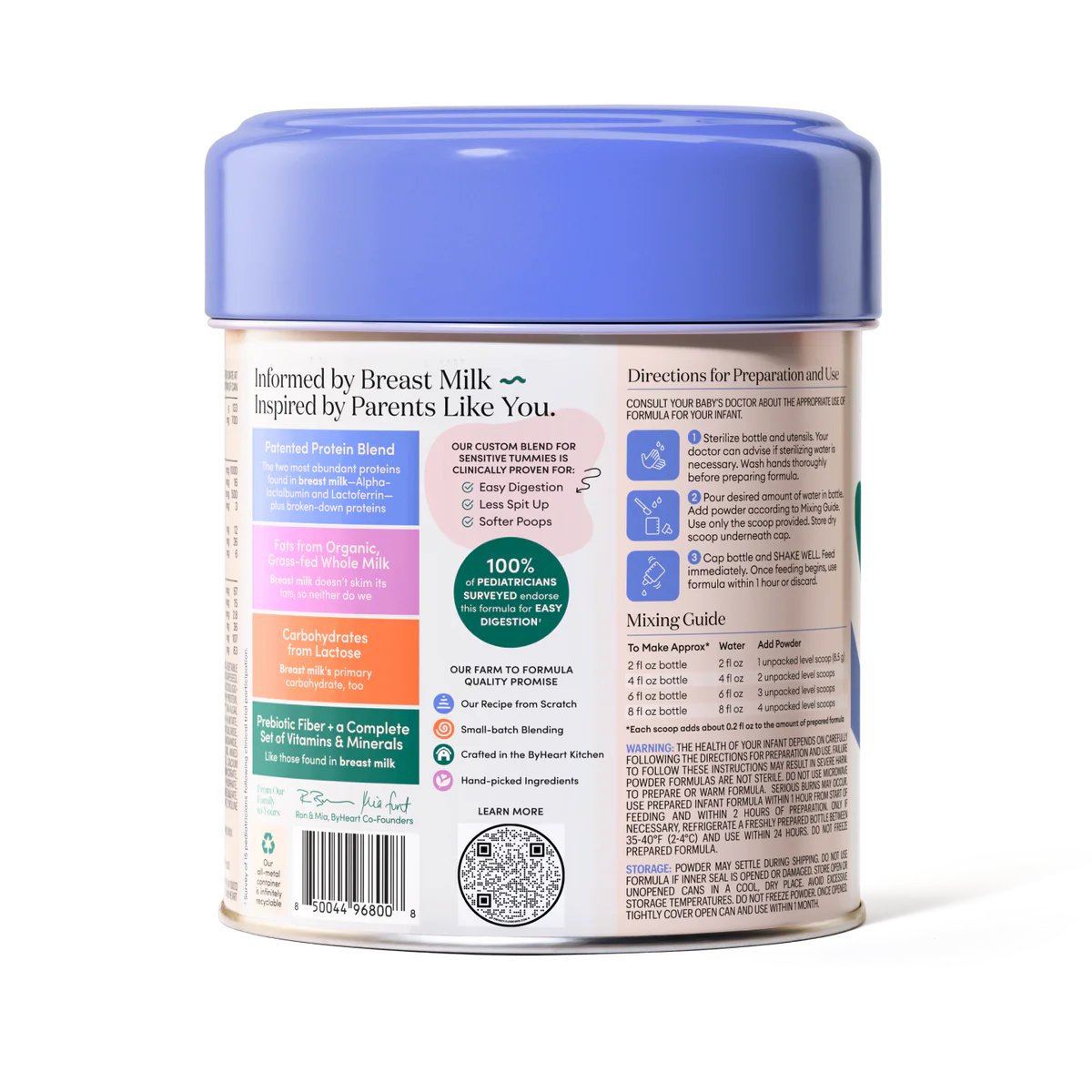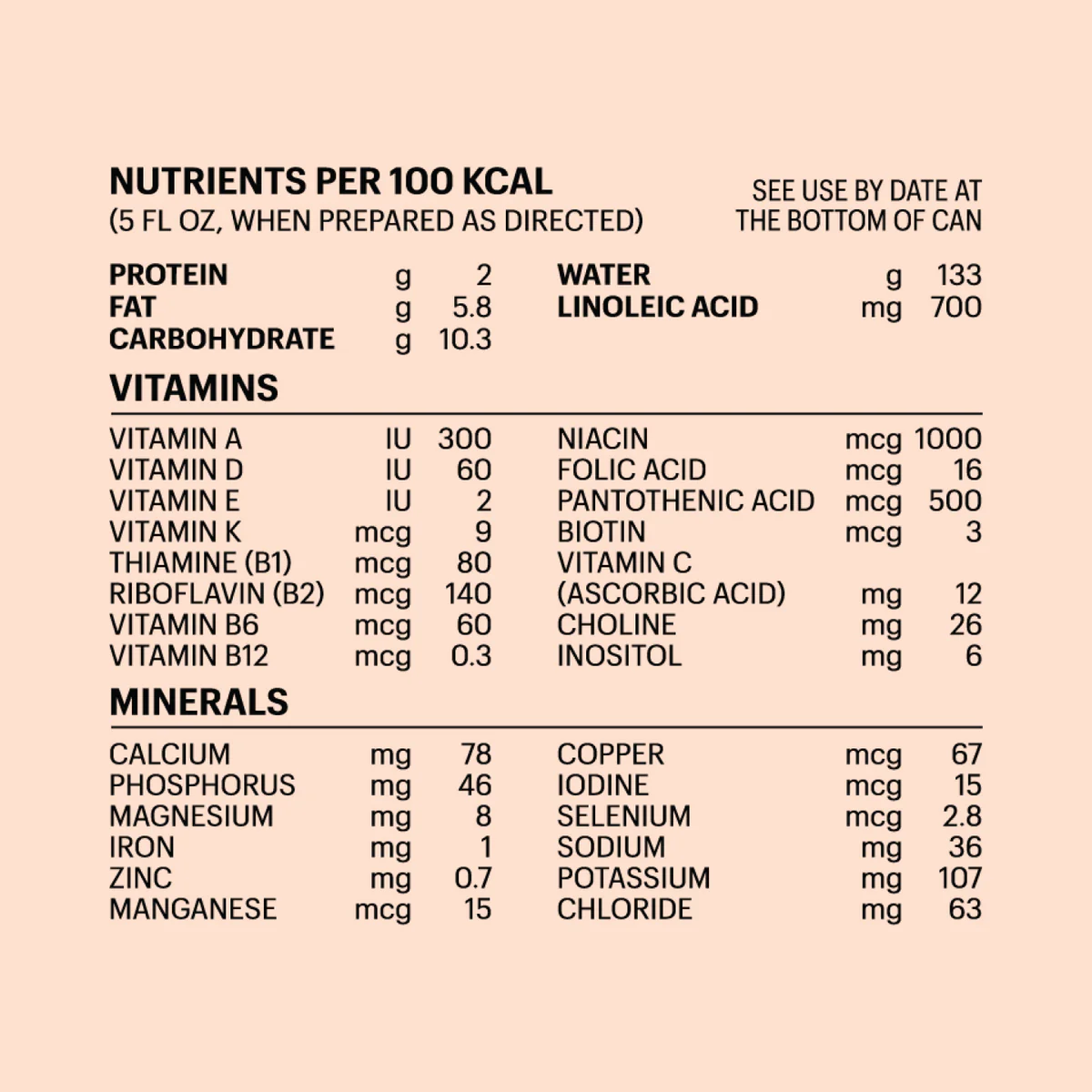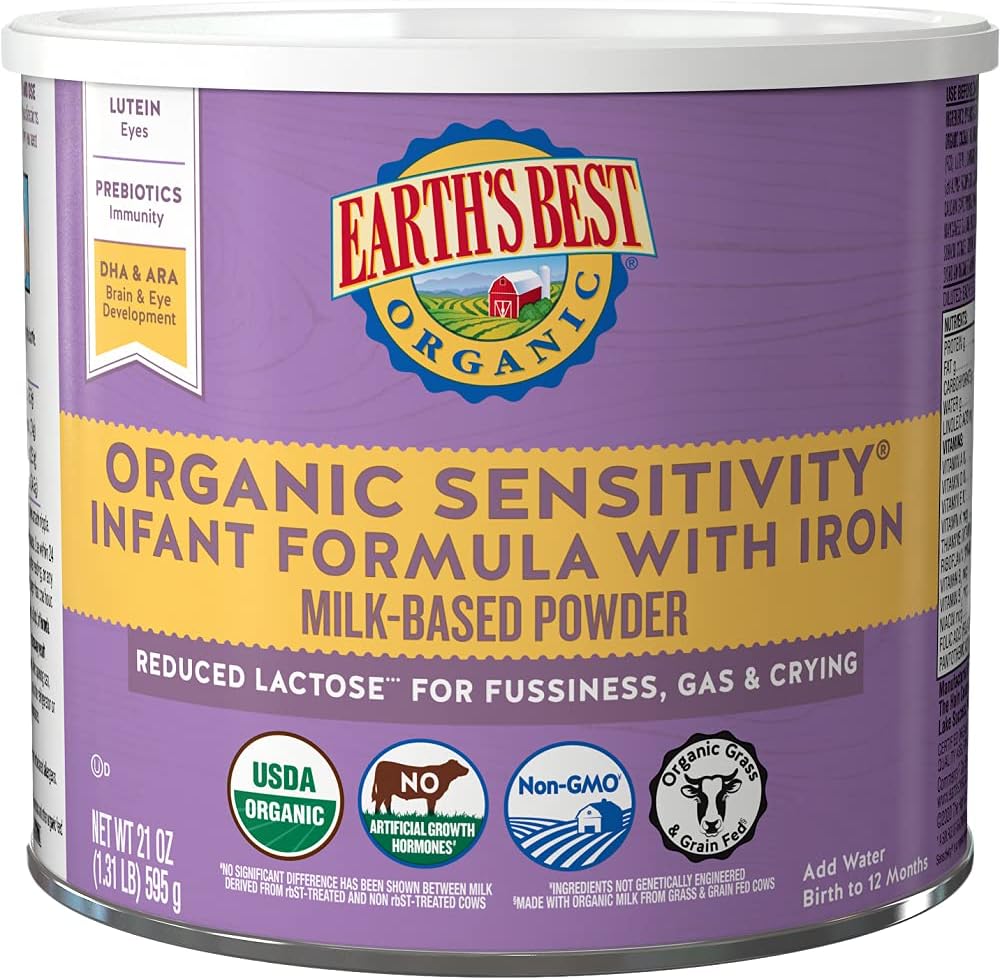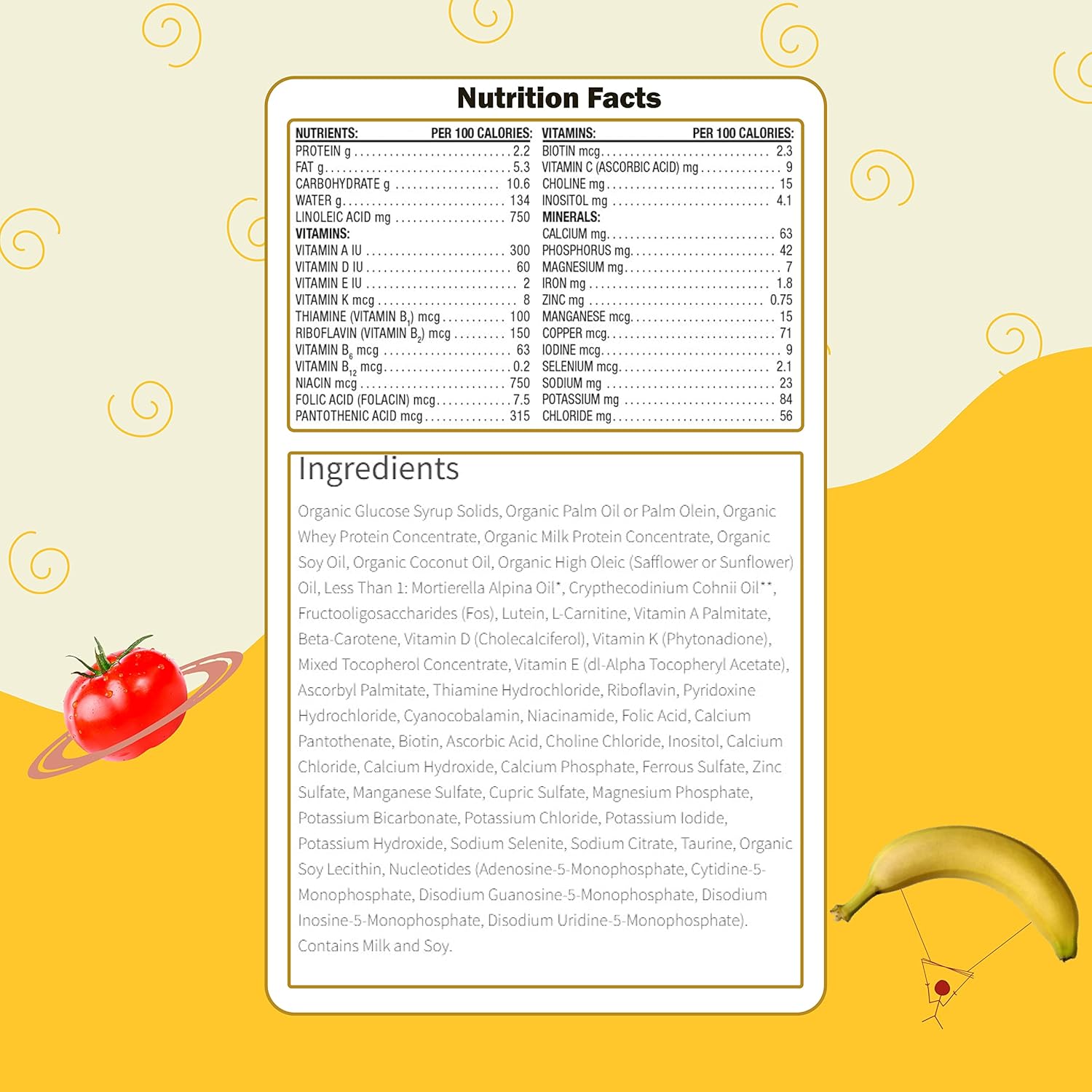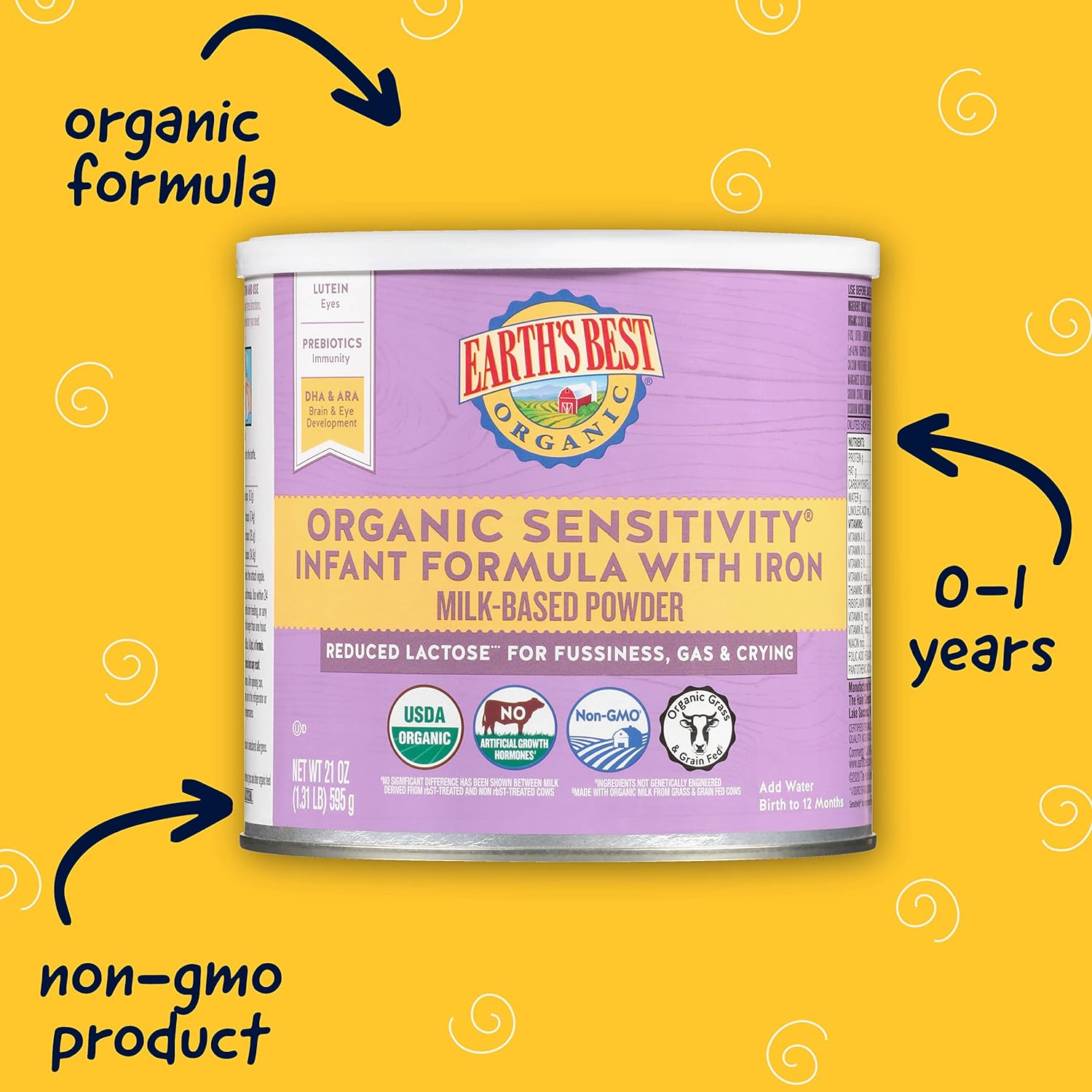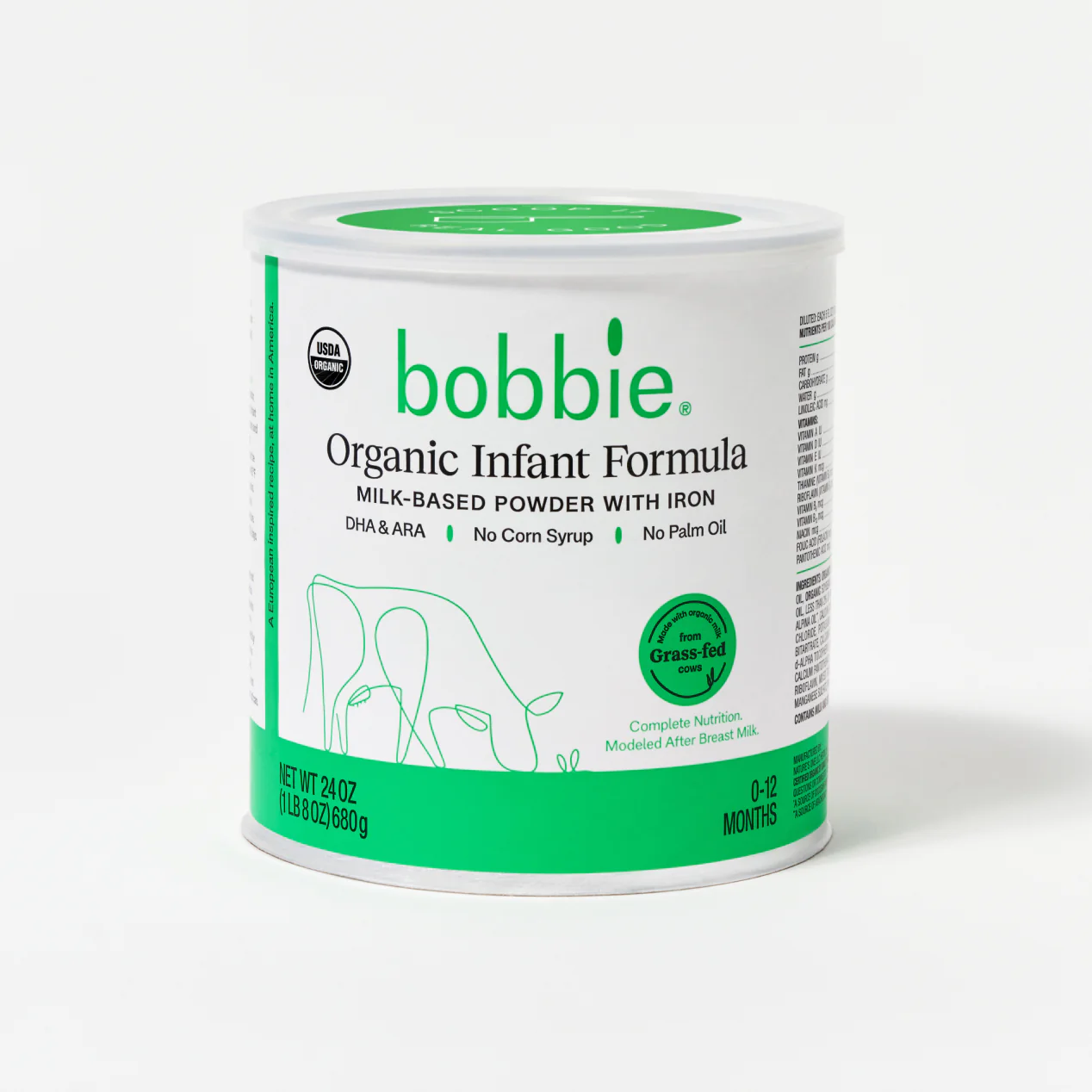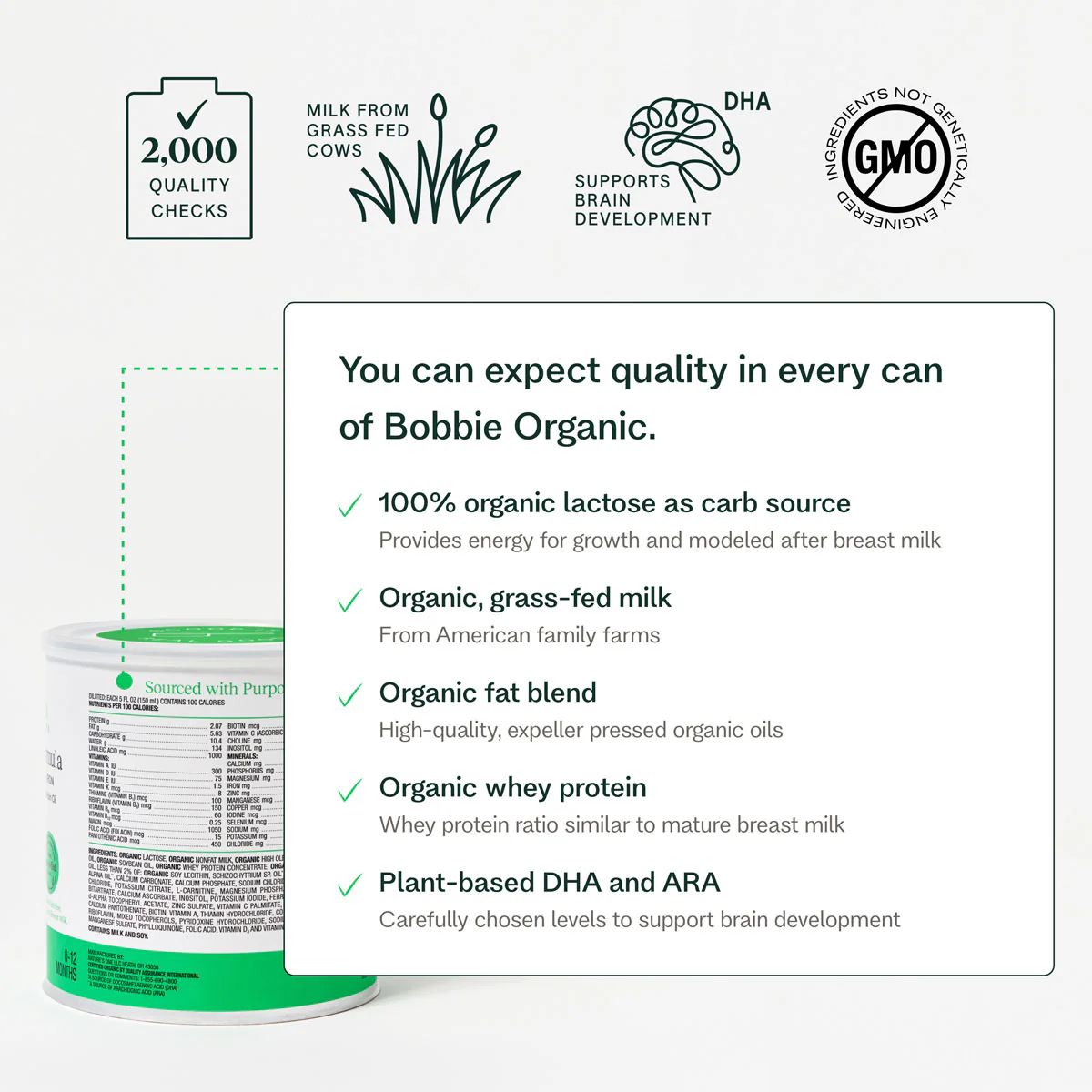5 Best Baby Formulas for Weight Gain: Promoting Optimal Development
Is your baby's weight gain a concern? Learn about the benefits of weight-gain formulas and how they can support your child's development
Published September 17, 2024

When we picture a healthy baby, the image that often comes to mind is that of a rosy-cheeked, chubby-armed cherub, all smiles and gurgles. But, for some families, this isn't always the reality, as not all infants can gain weight as expected.
When traditional feeding methods aren't enough, specialized formulas can offer a valuable solution. Let's explore the factors that can influence infant weight gain and how specialized formulas can make a positive impact.
» Is your baby struggling to gain weight? Invest in specialized weight-gain formula
Our Pick: Best Baby Formulas for Weight Gain
- Best overall baby formula for weight gain: Else Nutrition Plant-Based Complete Nutrition Formula
- Best organic baby formula for weight gain: Bellamy's Organic Step 1 Infant Formula
- Best whole food baby formula for weight gain: ByHeart Whole Nutrition Infant Formula
- Best sensitive baby formula for weight gain: Earth's Best Organic Sensitive Baby Formula
- Best iron-rich baby formula for weight gain: Bobbi Organic Infant Formula
The Importance of Healthy Weight Gain
Healthy weight gain in infancy isn't just about hitting a certain number on the scale—it's about laying the groundwork for your child's future. Think of it like building a house—a strong foundation is necessary for a sturdy structure.
In the same way, proper nutrition in the early years helps build a strong body, a sharp mind, and a resilient immune system. It's like giving your child a head start on life. Here's how it helps:
- Brainpower: Adequate nutrition fuels a child's growing brain, helping them learn, remember, and think clearly.
- Growing Stronger: Good food helps kids grow taller and stronger and reach milestones like rolling over and crawling.
- Fighting Off Infections: A well-nourished body is better at fighting infections and staying healthy.
- Setting the Stage: What you feed your baby now can influence their health later in life, reducing the risk of problems like obesity and diabetes.
- Balancing Act: Proper nutrition keeps hormones in check, helping kids grow and develop normally.
- Gut Feeling: Healthy food helps a child's digestive system work well, preventing tummy troubles.
» Understand the micronutrient needs of kids
When to Use Weight-Gaining Formula
If your little one isn't gaining weight as they should or has a medical condition, a weight gain formula might be a good option.
Here are some situations where it might be helpful:
- Premature Birth: Preterm babies often have higher nutritional needs to catch up. Their digestive systems may also be less mature, so they need easily digestible, nutrient-dense formulas.
- Illness: Medical conditions, such as congenital heart defects, respiratory issues, or neurological conditions, can increase a baby's caloric needs or impair their ability to feed effectively.
- Digestive Issues: Some babies might have trouble absorbing nutrients from breast milk due to conditions like short bowel syndrome, cystic fibrosis, or severe reflux.
- Not Gaining Enough: If your breastfed baby isn't gaining weight as it should, formula can give it an extra boost.
- Failure to thrive: This medical condition, characterized by insufficient weight gain and growth, may require intervention with specialized nutrition.
» Learn the signs that formula isn't right for your baby
5 Best Baby Formulas for Weight Gain
Characteristics of Effective Weight-Gain Formulas
These specialized formulas are designed to provide additional nutrition to infants who need to gain weight more rapidly than typical and have several key characteristics:
- Increased Calorie Content: Weight gain formulas typically provide 22–24 calories per ounce or more than standard formulas' 20 calories per ounce. This allows infants to consume more calories without increasing formula volume.
- Higher Fat Content: Fat, the most calorie-dense nutrient, is often increased in these formulas. Various oils are used, including MCTs, for easy absorption. Some formulas include algae-derived DHA to support brain and eye development.
- Protein Sources and Digestibility: Formulas use diverse protein sources to fuel babies' growth. Some incorporate hydrolyzed proteins for easier digestion. Manufacturers often adjust amino acid profiles to closely match breast milk composition.
- Carbohydrate Sources: Formulas use different carbohydrates as energy sources. Some include fiber, such as fructooligosaccharides, to support digestive health.
- Added Vitamins and Minerals: Weight gain formulas contain higher levels of certain micronutrients to support rapid growth. Essential nutrients include calcium, phosphorus, iron, zinc, and vitamin D, with attention paid to potentially lacking nutrients.
- Prebiotics and Probiotics: Many weight gain formulas include these to support digestive health. Prebiotics, like galactooligosaccharides, feed beneficial gut bacteria, while probiotics introduce live beneficial bacteria strains.
» Explore tips and tricks for childhood nutrition
Extra Benefits of Weight Gain Formula
While weight gain is the main goal, specialized formulas offer a range of additional benefits that support your baby's overall health and development.
- Customized Nutrition: Weight gain formulas are often tailored to meet specific nutritional needs, which can be particularly beneficial for infants with certain medical conditions or dietary restrictions.
- Improved Sleep Patterns: With adequate nutrition, babies may sleep better for longer periods, which is crucial for growth and development.
- Enhanced Muscle Development: These formulas' higher protein content can support better muscle growth and strength.
- Boosted Energy Levels: The increased calorie content can improve energy levels, potentially making babies more alert and engaged during awake periods.
- Support for Catch-up Growth: These formulas can help babies who have fallen behind on their growth curve catch up to their peers more quickly.
- Reduced Feeding Frequency: The higher calorie content means babies may feel satisfied for longer, potentially reducing the number of feedings required throughout the day.
- Improved Bone Density: The extra calcium and vitamin D in these formulas can contribute to stronger bone development.
» Tired of commercial formulas? Explore healthy and organic alternatives
Important Considerations
Beyond choosing the right formula, these practical tips can help ensure a smooth and successful transition to a weight gain formula:
- Gradual Introduction and Monitoring: Introduce the new formula gradually to allow your baby's digestive system to adjust. Watch for signs of allergic reactions like rashes, excessive gas, or changes in stool.
- Track Progress: Record your baby's weight regularly to ensure the formula is effective. Remember that weight gain takes time, so give the new formula at least a few weeks before assessing its effectiveness.
- Proper Preparation and Hygiene: Always follow mixing instructions exactly—don't over concentrate the formula. Maintain good hygiene in preparation and storage to prevent contamination.
- Holistic Approach: While nutrition is crucial, ensure your baby gets enough sleep and age-appropriate physical activity. If your doctor recommends it, consider supplementing with breast milk or other nutritional supplements.
- Regular Medical Supervision: Visit your pediatrician regularly for check-ups to monitor progress and adjust the feeding plan as necessary.
- Plan for Future Needs: Be prepared to transition to different formulas or feeding methods as your baby grows and their nutritional needs change, always following your pediatrician's recommendations.
» Check out how to switch from ready-made to powder formula
Tailored Nutrition for Thriving Infants
Insufficient weight gain in infants is a critical health issue that extends beyond aesthetic concerns. It can lead to significant short-term and long-term consequences for their overall well-being. While traditional feeding may not be enough for all infants, specialized formulas offer tailored nutritional support.
Our carefully selected list of weight gain formulas offers more than just additional calories; they are meticulously formulated to address the specific nutritional needs of infants who struggle to thrive on traditional feeding methods.
» Don't let your baby's weight gain be a concern. Try Else Nutrition Plant-Based Complete Nutrition Formula
The content and advice provided in this article are for informational purposes only and are not a substitute for medical diagnosis, treatment, or advice for specific medical conditions.
Always consult a pediatrician to understand your child's needs. The article expresses the views of the article's editor.








